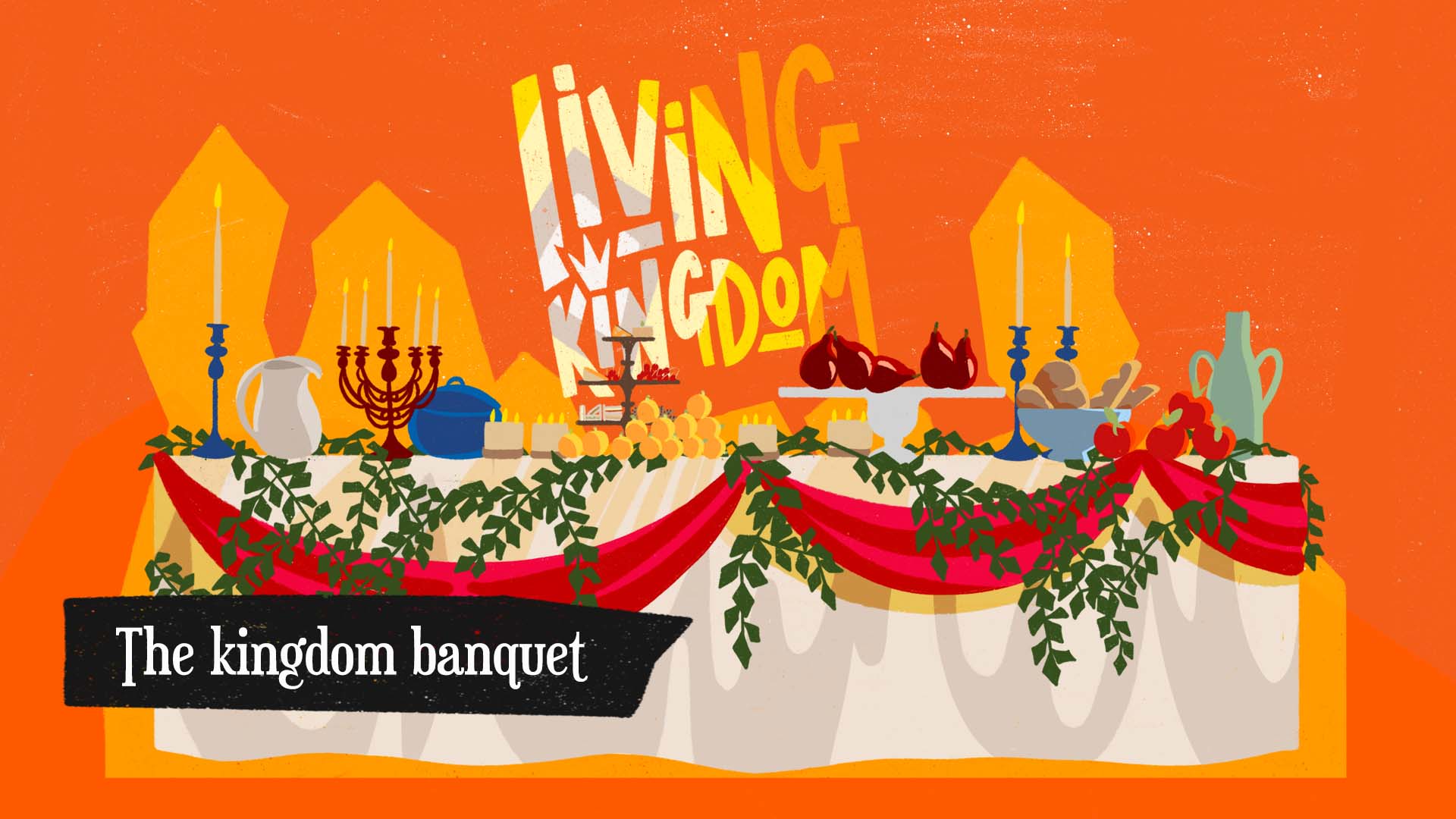Parable of the wedding banquet
“But they paid no attention and went off—one to his field, another to his business. The rest seized his servants, mistreated them and killed them. The the king said to his servants ‘The wedding banquet is ready, but those I invited did not deserve to come. So go to the street corners and invite to the banquet anyone you find’.” (Matthew 22:5,6,8,9)
Jesus taught well-known stories about everyday life to illustrate the principles of His kingdom to His audiences. Christ came across a diversity of people in His ministry. Some loved Him while others did not. The parable of the wedding banquet demonstrates God’s unconditional love for His people. God is preparing heaven for all humanity. He is inviting all classes of people to accept heaven’s invitation. However, those who reject Jesus as their Redeemer will be destroyed. The coming King wants all people to cover themselves with Christ’s righteousness to be saved in His kingdom.
The setting
The parable of the wedding feast was told when Jesus was in the temple in Jerusalem (Matthew 21:12,23). Jesus’ disciples, crowds, chief priests, Pharisees, scribes, elders and the children were there too (Matthew 21:6,8,11,15,23,27,45,46). Those religious leaders challenged Jesus’ authority (Matthew 21:23-27). They tried to trap Jesus because of what He said (Matthew 21:45,46; 22:15). We also notice the crowds following Jesus were comprised of people whom Pharisees called bad and good. (Matthew 21:8-11; 21:15).
The context
Immediately before the parable of the wedding banquet, Jesus tells the story of a Landowner (God) who sent His Son (Jesus) to ungrateful tenants who killed Him (Matthew 21:33, 34, 37-39). Jesus tells the chief priest and elders, He is the Chief Cornerstone the builders rejected (Matthew 21:42-45; Psalm 118:22). With the absence of the Chief Cornerstone in the structure of the temple, the building cannot stand firm. Likewise, the absence of the Saviour in the lives of church leaders disqualifies them from eternity. Jesus had told those same leaders, when invited to a wedding feast, they should not take the place of honour because some people are more important than them (Luke 14:7-9). Jesus is teaching them to be humble because the kingdom of heaven is also for the poor, crippled, lame and the blind (Luke 14:11-15)—in short, for everyone.
The invitation
God is preparing heaven for all people to enjoy its fullness. He announces this to them (Matthew 22:1,2; Luke 14:16). When God created this world (Genesis 1:1) and sin entered it, He put in place the plan to send Jesus as our Saviour (Genesis 3:15, John 3:16).
Today He is preparing heaven so He can return very soon to take His children home (John 14:1-3). God prepares the heavenly banquet for Christians today—His disciples who have just accepted Jesus and are still learning from God’s Word. People like Pharisees who are well educated in God’s Word, God is preparing heaven for them too. The heavenly King is preparing a heavenly banquet for people who think they are small in the sight of God and men, like the little children. God makes every possible way for everyone to enjoy His divine banquet (Matthew 22:8).
The King (God) is very generous when He invites guests to join His kingdom banquet (Matthew 22:3; Luke 14:17). The word invite in its original language is a verb that describes a completed verbal action in the past, but the results continue to the present.1 What an interesting message. God invited people in the past and the invitation is still valid today. This parable teaches an outstanding lesson about God’s continuous love for all people.
The God of the second chance sends out His first and second invitation to those chosen to be part of the banquet. Christians who lose sight of Jesus—even though they are in the church for many years—God is inviting them to come to His banquet (Matthew 22:3,4; Luke 14:17). The merciful God sends out a third invitation to as many as possible; both “bad” and good will fill His banquet hall (Matthew 22:9,10: Luke 14:22,23). The heavenly banquet is not only for the righteous people like senior church officers or long-term church members, but it is for people who those communities perceive as worse than criminals. God invites sinners and righteous people to enjoy His kingdom feast.
The kingdom banquet invitees are resisting heaven’s invitation. They were not willing to come to the banquet (Matthew 22:3). These are church members who are not willing to align their lives to the will of God and the principles of Scripture. They made light of the kingdom banquet invitation and went their own ways (Matthew 22:5). The guests who are part of the first and second invitation represent current church leaders and members— Christians today whose hearts cherish worldly possessions such as land and agricultural farming (Matthew 22:5; Luke 14:19). Planting and selling of coffee and kava make it very hard for contemporary Seventh-day Adventists to fully appreciate and accept heaven’s invitation. Or it could be someone who has accepted Jesus into their personal life while their spouse has not. This can cause them to reject the salvation message because of their partner (Matthew 22:5; Luke 14: 20). Business and family relationship issues can destroy all the privileges and blessings of heaven’s banquet invitation (Matthew 22:6).
God will judge those who continuously refuse heaven’s invitation. The destiny for those who reject the heavenly invitation is fire (Matthew 22:7; Luke 14:24). God’s judgement will visit those who spend many years in the church but are not willing to live their lives in harmony with Scripture (Matthew 22:3). Divine judgement will visit those who are making excuses after heaven’s invitation. Because they love their worldly belongings too much, they will be cast out into the outer darkness (Matthew 22:5,6,13). Church leaders, church members or those who are still enemies of Christ who reject Jesus will reap their consequences for rejecting the Saviour (Matthew 22:13). Worldly materials will make many Christians and non-Christians miss out on God’s kingdom (Luke 14:24).
Fully clothed
The wedding garment is crucial in this parable. The usual custom was that each guest was supplied with a robe to be worn during the feast.2 This implies that only those with the wedding robe have the right to enter the marriage banquet. The wedding garment in this parable is Jesus’ righteousness. When we accept Jesus into our lives, His righteousness covers our sinful lives which makes us worthy of inheriting eternal life (Revelation 3:4,5).
Every person longing to be in heaven must “put off” the “old man of sin” in their lives (Colossians 3:8,9; Ephesians 4:22) and exchange/“put on” Christ’s righteousness (Romans 13:14).
The Pharisees, chief priests and elders thought faithfulness to their traditions would save them. Jesus is saying to contemporary Christians, faithfulness to the Lord’s service, strict rules for Sabbath and vegetarianism will not save them—just His righteousness. Whether we are like Pharisees, chief priests, disciples, crowds or little children, we all need Christ’s righteousness which will enable us to enter God’s kingdom.
Jesus taught the people during His time and is teaching those in the end time that He is preparing heaven for everyone. Whether or not you accept Him, heaven is a prepared place. No matter how many times people reject Jesus, the Saviour keeps on inviting the righteous and unrighteous to possess eternal life. The reluctant and unrepentant who forsake Christ’s righteousness will by no means enter the kingdom of God. Acceptance of Jesus in people’s lives qualifies them to enter into God’s kingdom banquet.
Lui Yarakei minister, Vanuatu Mission.
1. Michael S Heiser and Vincent M Setterholm, Glossary of Morpho-Syntactic Database Terminology (Bellingham, WA: Lexham Press, 2013).
2. MG Easton, Easton’s Bible Dictionary (New York: Harper & Brothers., 1893).







